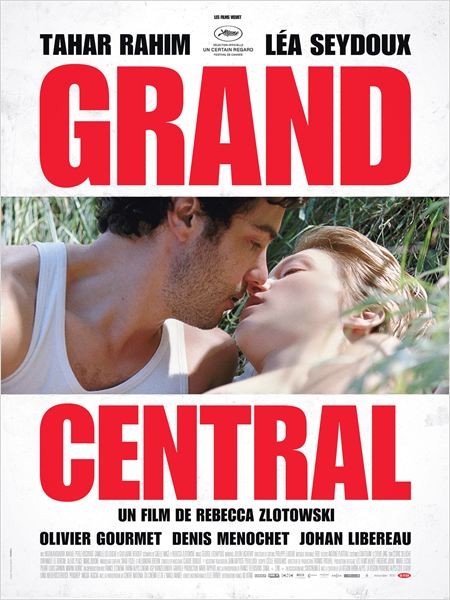Movie watching is a subjective experience, you can find yourself unwillingly distracted by any type of detail. There will come a point in Grand Central, when you can no longer look past the fact that leading man, Gary (Tahar Rahim), appears to own only one shirt. The story pitches him as underachieving, acting aloof to the consequences of his actions, and a subtly complex character to dissect but you could also very well be consumed with wondering why he insists on wearing only one shirt. Ever. In training for his new job as cheap labour in a nuclear power station – check shirt; visiting his family to give some background – check shirt; before work; after work; while pursuing an illicit affair; following a scrap in the mud; following a walk in the rain – shirt, shirt, shirt.
Ironically the movie otherwise is subtly stylish and sartorial decisions aside the movie presents a rich challenge in considering how the lives of otherwise simple folk have been heightened by their setting. There may be tremendous amounts of effort at hand in constructing the feel of the film but it is effortlessly atmospheric. Set in the Rhone valley there is striking use of contrast. The clinical, bleached interior of the power plant where events are portrayed with a fly-on-the-wall precision is an interesting, novel setting. The risks and exploitation of the workers as well as their own willingness and reluctance are all played out in these confines; Gary is blinkered to want nothing more than to be paid, his older workmates around him are jaded and scarred. Outside of hours, the workers are caught up in a soap opera that is grimy but shot in soft light. Gary seems to almost sleep-walk into an affair, his motivations are never clear, he is neither rebelling nor accepting. He is the character we know the most and the least.
Both worlds are run through with an air of tension. The plant station setting and the demands of their work lends itself easily to sweat beads, the occasional klaxon of an alarm at the power plant is a blunt reminder of the risk. The people prove as volatile. The raw energy between a couple as they sit quietly in the back of a car is wordless but visceral, the film achieves as much in silence as it does through talk or action. There is a string of cinematic touches like a shot of flies trapped in a light bulb casing – moments that put you on edge so that Grand Central becomes an experience movie as much as a contained story.
Grand Central won’t have you groaning at lazy exposition, we’re left to make our own assessments. The movie is driven by its setting; it’s unclear if the characters would be as interesting without the context of their employment. Here though they are disaffected and self-destructive and will linger long on your mind after you have left the cinema.

